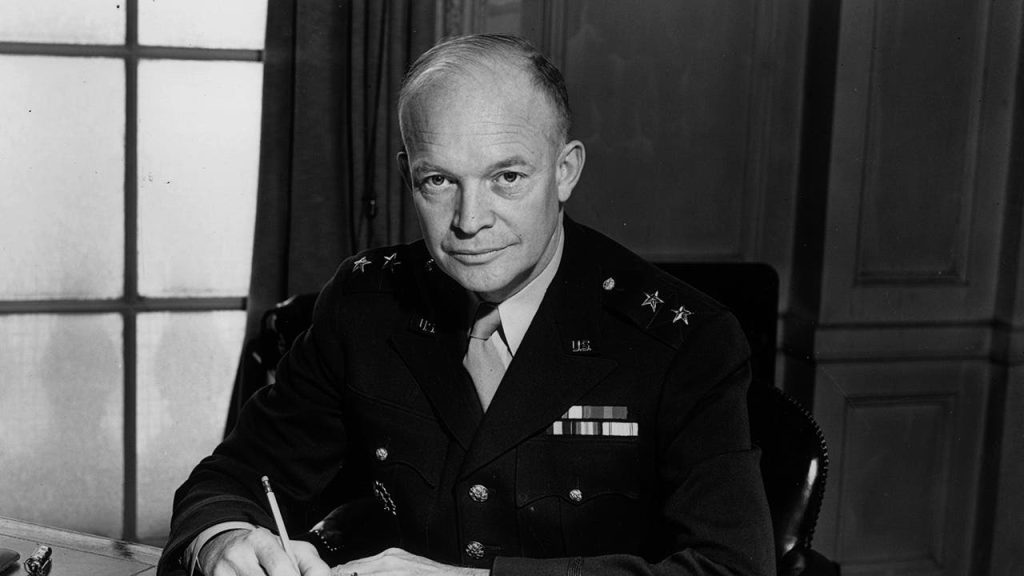On June 25, 1942, Dwight D. Eisenhower was appointed commanding general of the European Theater during World War II. Raised in Kansas, Eisenhower began his military career at West Point, graduating in 1915 and serving in various positions during World War I. Following the war, he continued to climb the ranks and excelled in staff assignments under prominent generals. During World War II, Eisenhower drafted a basic strategy for the war against the Axis and took over as the commanding general of the European Theater at the behest of Chief of Staff of the U.S. Army George C. Marshall.
Eisenhower’s leadership skills were tested during Operation Torch, an invasion of North Africa in November 1942, which was followed by successful landings in Sicily and Italy. By the end of 1943, Eisenhower had negotiated an Italian surrender and continued to rise in prominence. In June 1944, he was named the supreme commander of the Allied Expeditionary Force for the invasion of Europe, known as Operation OVERLORD or D-Day. He launched the invasion on June 6, 1944, aiming to surprise the Germans with the timing and location of the landings, despite limited resources for only one attempt.
After World War II, Eisenhower went on to become the chief of staff of the U.S. Army before being convinced to run for president. He was elected in 1952 and reelected in 1956, becoming the first Republican president in two decades. Eisenhower’s presidency focused on maintaining military strength while cautioning against vast and prolonged military expenditures that could pose risks to the nation’s way of life. In his farewell address, he emphasized the importance of peace and unity.
Eisenhower’s legacy as a military leader and president is marked by his strategic acumen, diplomatic skills, and commitment to peace. His tenure as president saw the continuation of the Cold War and the challenges of maintaining military readiness while advocating for peace. Eisenhower’s leadership during World War II, particularly during the Normandy invasion, solidified his reputation as a capable and respected commander. His presidency set the tone for subsequent administrations with his focus on national security and the importance of avoiding excessive militarization.
In conclusion, Dwight D. Eisenhower’s journey from a military career to the presidency is a testament to his leadership abilities and dedication to serving his country. His impact on American history, both as a general during World War II and as a two-term president, underscores his enduring legacy as a respected figure in U.S. politics and military history. Eisenhower’s commitment to peace, unity, and military strength continues to be relevant in today’s geopolitical landscape, making him a revered figure in American history.













